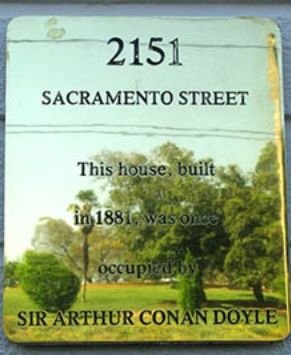The Mary Russell Companion (21 page)
Read The Mary Russell Companion Online
Authors: Laurie R. King
Tags: #Mystery; Thriller & Suspense, #Mystery, #Women Sleuths, #Reference, #Writing; Research & Publishing Guides, #Research

I looked up, hoping for an explanation, only to find both sets of grey Holmes eyes locked expectantly onto me. How long, I wondered, before I stopped feeling like some slow student facing her disappointed headmistress? "I’m sorry," I began, and then I paused, my mind catching at last on a faint sense of familiarity: Kimball. And O’Hara. Add to that a town that could only be in India. . . . No; oh, no—the book was just a children’s adventure tale. "I’m sorry," I repeated, only where before it had connoted apology, this time it was tinged with outrage. "This doesn’t have anything to do with Kim, does it? The Kipling book?"
"You’ve read it?" Mycroft asked.
"Of course I’ve read it."
"Good, that saves some explaining. I believe this to be his amulet case."
"He’s real, then? Kipling’s boy?"
"As real as I am," said Sherlock Holmes.
(For more background and a longer excerpt, see this book’s page on the Laurie R. King website.)
Locked Rooms
Russellisms
“Why does it not surprise me that the sound of a pistol would herald the arrival of my wife?” Holmes drawled.
**
The American retrieved his wallet, looked at the open hand, and slowly extended his own. “The name’s Hammett, Dashiell Hammett. And I guess we might as well have a drink.”
**
“Come Russell - the game’s afoot!”
“He actually says that?”
“Only to annoy me.”
All the world’s stage: places Russell goes in this Memoir
Japan: Tokyo
Hawaii
California: San Francisco, Los Angeles
(See the
Maps chapter
for details.)
Laurie’s Remarks
Q: When is a reliable figure not reliable?
A: When she is too close to the subject.
One night, Laurie R. King had a dream:
I was giving a tour of a house—my house, a dark, wood-built, many-leveled structure among trees. I showed my guests one room, then another, and the open spaces between them, but all the while I knew that there were rooms that I was not showing them, large, lovely rooms hidden behind invisible doors.
The dream is not the book. The dream is not even
in
the book, but Laurie’s images of hidden rooms worked itself into the fabric of Russell’s story. The dreams that have plagued Russell since leaving India, the firm memories of her past that begin to soften, the trust in her own mind that begins to….
A memoir told by an unreliable narrator is tricky. After all, the reader knows only what that narrator chooses to tell. If she is keeping things hidden, either inadvertently or deliberately, how is the reader to know who to trust?
Sometimes one needs to hear an alternative version of the narrator’s truth, one that echoes the central version, but in another key, its notes forming a counterpoint. As a memoirist, Mary Russell has sufficient self-awareness to anticipate the problem, with this book at least. Thus, when she describes an event, she then permits Holmes to add his own, often very different, description. What she may not anticipate is how the reader begins to suspect some trouble deep within the young woman long before Russell herself does.
First person ought to be the most intimate form of storytelling, but in fact, it is oddly distancing: How does one come to know a person while looking through their eyes? Even a mirror reverses reality.
And to add to the confusion,
Locked Rooms
blends all sorts of real-life people and verified events with those previously unknown to the world. Arthur Conan Doyle, for example, did visit San Francisco in 1923. (A plaque at 2151 Sacramento Street declares that it was “occupied by” Doyle, which is true, although the occupation was brief. More intriguing, the house is a stone’s throw away from Russell’s childhood home, just across Lafayette Park.) Later, Doyle did write a book about his world tour promoting Spiritualism (
Our American Adventure).
It was even published during the time Russell and Holmes were in San Francisco, when it was reviewed in the
Chronicle
. But if Sherlock Holmes was in San Francisco to read the review, how on earth did the newspapers not catch on?

Arthur Conan Doyle plaque, San Francisco
Similarly, Dashiell Hammett was certainly living in San Francisco at the time, but not one of his previous biographers so much as intimates that he met Holmes, far less worked with him. An oversight, or a deception? Only time will tell…
Excerpt
Japan had been freezing, the wind that sliced through its famous cherry trees scattering flakes of ice in place of spring blossoms. We had set down there for nearly three weeks, after a peremptory telegram from its emperor had reached us in Hong Kong; people kept insisting that the countryside would be lovely in May.
The greatest benefit of those three weeks had been the cessation of the dreams that had plagued me on the voyage from Bombay. I slept well—warily at first, then with the slow relaxation of defenses. Whatever their cause, the dreams had gone.
But twelve hours after raising anchor in Tokyo, I was jerked from a deep sleep by flying objects in my mind.
***
“Terra firma,” I said. “A week in California, tying up business, and then we can turn for home. By train.” I don’t get seasick on trains.
“A week will be sufficient, you believe?”
“To draw up the papers for selling the house and business? More than enough.”
“And that is what you have decided to do.”
This noncommittal, pseudo-Socratic dialogue was beginning to annoy. “What are you getting at, Holmes?”
“Your dreams.”
“What about them?” I snapped. I should never have told him about them, although it would have been difficult not to, considering the closeness of the quarters.
“I should say they indicate a certain degree of anxiety.”
“Oh for heaven’s sake, Holmes, you sound like Freud. The man had sex on the brain. ‘Rooms in dreams are generally women,’ he declares. ‘A dream of going through a series of rooms indicates a brothel, or a marriage’—I can’t imagine what his own marriage could have been like to equate the two so readily. And the key—God, you can imagine the fraught symbolism of playing with a key that lies warm in my pocket! Innocent dreams can embody crudely erotic desires.’ The faceless man he’d no doubt equate with the male organ, and as for the objects that spurt wildly into the air—well, I’m clearly a sick woman. What does it say about my ‘erotic desires’ that reading the man’s book made me need a hot bath? Or perhaps a cold shower-bath.”
“You sound as if you’ve researched this rather thoroughly.”
“Yes, well, I found a copy of his Interpretation of Dreams in the ship’s library,” I admitted, then realised that I was also admitting to a greater degree of preoccupation than I thought sensible. To lead him away from the admission, I said, “I wouldn’t have thought that you of all people would fall for the Freud craze, Holmes.”
(For more background and a longer excerpt, see this book’s page on the Laurie R. King website.)
The Language of Bees
Russellisms
I had no wish to be arrested in a raid. Holmes’ rivals in Scotland Yard would never let either of us live it down.
**
Beekeeping would appear to be a hobby for the tin-pot god, the man who seeks to keep an entire race under his control.
**
“Russell, you are the expert in religion, I merely pursue crime.”
All the world’s stage: places Russell goes in this Memoir
Britain: Portsmouth, Sussex, London, York, Edinburgh, Inverness, Orkneys
(See the
Maps chapter
for details.)

Stone circle, England
Laurie’s Remarks
Silence begets speculation. There has long been speculation concerning a possible offspring of Sherlock Holmes, from Nero Wolfe (just look at the e/o/o/e arrangement of vowels in both names!) to the elaborate Wold Newton universe chronicled by Philip José Farmer. In the second of the Russell memoirs (
Monstrous Regiment)
Russell first mentions Sherlock Holmes’ son:
...something in his hands reminded me of Holmes, and of Holmes’ lovely, lost son.
Later in the same volume, when she is trying to convince Holmes to help a troubled young Army officer, she says to him:
“And if he were your son? Would you not want someone to try?”
It was a dirty blow, low and unscrupulous and quite unforgivably wicked. Because, you see, he did have a son once, and someone had tried.
Seven books later, we finally get around to meeting the son he had with Irene Adler, formerly (former to Russell, that is) “The Woman”.
One of the great pleasures (certainly from the writer’s point of view) of a long series of books about a group of people is that one can keep discovering them. Nine books in, and something enormous and new comes along, something that flings open all kinds of unimagined doors: Sherlock Holmes as a father.
An entirely new language for the beekeeper.

Sherlock Holmes (in disguise), witness to Irene Adler’s marriage
(
A Scandal in Bohemia
)
**
Scopes monkey trial and Sister Aimee in America; Naturalists and Spiritualism; Houdini and fairy photographs and Ouija boards.
The Twenties are a long way from the world Holmes was born into. A man his age has gone from gas lamps to neon lights; lantern slides to moving pictures; hansom cabs to aerial bomber planes: Victoria’s stiff upper lip has a joke moustache drawn on it. In the Twenties, world has learned to speak the language of Surrealism—a language with roots in confusion and a vocabulary forged under the trauma of the Front.
And Holmes own son, it turns out, is among the most fluent speakers of this new tongue. Damian Adler is a Surrealist artist. A man who glories in confusion, who welcomes chaos and repudiates the analytical. A man with almost nothing in common with Sherlock Holmes…except for their blood that runs in their veins.
Excerpt
As homecomings go, it was not auspicious. The train was late. Portsmouth sweltered under a fitful breeze.
Sherlock Holmes paced up and down, smoking one cigarette after another, his already bleak mood growing darker by the minute. I sat, sinuses swollen with the dregs of a summer cold I’d picked up in New York, trying to ignore my partner’s mood and my own headache.
Patrick, my farm manager, had come to meet the ship with the post, the day’s newspapers, and a beaming face; in no time at all the smile was gone, the letters and papers hastily thrust into my hands, and he had vanished to, he claimed, see what the delay was about. Welcome home.
***
